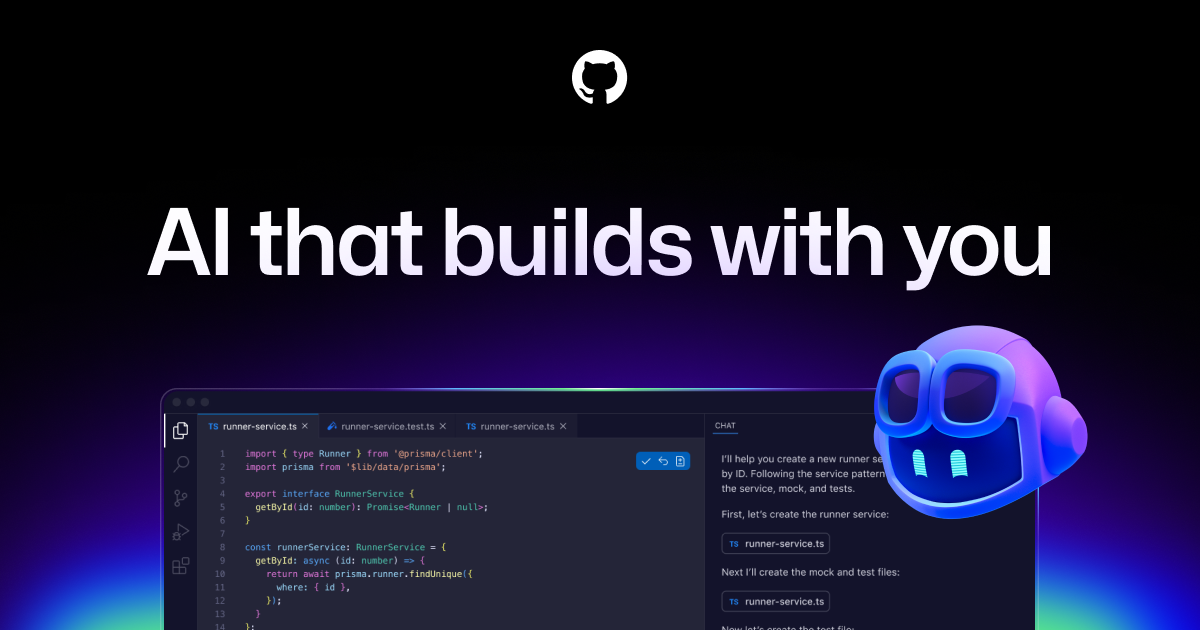
The direct answer is because in 2025, they’re not a luxury for cutting-edge tech firms; they’re a standard piece of equipment for any business that builds software. They make your team dramatically faster, reduce costly errors, and are now affordable enough that not using them puts you at a competitive disadvantage.
Think of it like this: you wouldn’t ask your team to dig a foundation with shovels when you could use excavators. AI coding tools are the excavators for software development.
What Exactly Are We Talking About?
We’re not talking about sentient robots writing entire apps by themselves. The most practical tools today are AI pair programmers or code assistants. They integrate directly into tools like Visual Studio Code and act like an autocomplete on steroids.
They suggest whole lines of code and complete functions, write documentation, and can even find bugs as you type. Popular examples include GitHub Copilot, Amazon Q, Tabnine, and Codeium.

The Real-World Benefits
1. They Make Your Developers Blazing Fast
The biggest win is pure productivity. Developers spend less time on repetitive boilerplate code (setting up structures, writing basic queries) and more on solving complex business problems.
- A task that might have taken 45 minutes can often be knocked out in 15.
- Onboarding a new developer onto a codebase is faster when they can ask the AI, "What does this function do?" instead of hunting through files.
- Writing documentation and tests—tasks often skipped—becomes effortless, leading to more robust software.
This isn't theoretical. On my team's LinkedIn and Dev.to posts, we consistently see developers reporting 20-35% time savings on standard tasks. That time adds up fast.
If you want to learn about the best vibe coding tool, make sure to read this blog after this:


2. They Level Up Your Entire Team's Skills
A junior developer with an AI assistant can produce code with the patterns and security considerations of a more senior engineer. The AI acts as a built-in mentor, suggesting best practices in real time.
- For a mid-sized company, this means your entire team can operate at a higher average skill level.
- It reduces bottlenecks where only one senior person knows how to solve a particular problem.
I’ve seen incredible discussions on r/programming and Hacker News where devs share how tools like Copilot taught them a new language feature or a more efficient way to structure a database call.

3. They Catch Costly Mistakes Before They Happen
This is the silent money-saver. Some tools, like Snyk Code, are specifically designed for security. They scan your code as you write it, flagging vulnerabilities like potential SQL injections or exposed API keys before they get merged and deployed.
Fixing a bug in development is orders of magnitude cheaper than fixing it after a customer finds it or, worse, after it causes a security incident.

4. Focus on Affordability & Accessibility
This is the key change for 2025. The price of entry is incredibly low.
When you weigh a small monthly fee against the hours of developer time saved, the Return on Investment (ROI) is almost immediate. For a team of 10 developers, if Copilot saves each person just 2 hours a month, it's already paid for itself.
If you're interested in what the best AI coding tools to use in 2025 are, then make sure to read this blog after this:

"This Sounds Good, But What About..." (FAQ)

Will this AI eventually replace my developers?
Absolutely not. It augments them. It's like asking if GPS replaced taxi drivers. It just made them more efficient and better at their job. The AI handles the repetitive stuff, freeing up your developers' brains for architecture, problem-solving, and innovation—the things humans excel at.
Is our code secure? Will our proprietary code be used to train these models?
This is a critical question. Most reputable vendors have addressed this clearly:
- GitHub Copilot: Offers a "non-retention" policy for business tiers, meaning your code is not used to train their public models.

- Tabnine: Specializes in on-premises deployment where your code never leaves your server.
- Codeium: Trains its models only on open-source code with permissive licenses.

Always read the data privacy policy, but know that the leading tools have strong answers for this.
We're a non-tech company. Is this still for us?
If you have any custom software, websites, or internal tools, yes. Whether you're a bank with a customer app or a retailer with an inventory system, your developers are building and maintaining code. Making them more efficient and their code more secure directly helps your bottom line.
What's the best free tool to start with?
Codeium. It's 100% free, powerful, and has plugins for all the major development environments. It's the perfect way to dip your toes in the water with zero risk or budget approval. Let a few developers try it for a week and ask them what they think. Their feedback will be your best proof.
The Bottom Line
Investing in AI development tools in 2025 isn't a speculative bet on the future; it's a practical investment in the present-day efficiency and quality of your team's work. The barrier to entry is lower than ever, and the payoff—in speed, skill, and security—is too significant to ignore.
The question is no longer "Can we afford to try these tools?" but "Can we afford not to?"
If this blog helped you in any way, then make sure to check out our other blog here:








